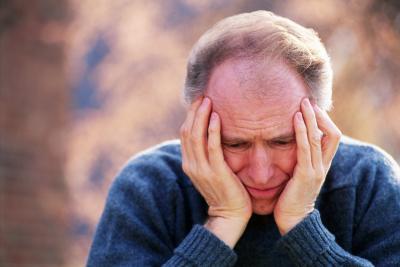 Inflammation of the prostate and the surrounding area is called prostatitis or prostate infection. The infection can be of several types with no symptoms or very intense pain. Around 10-12% of men experience prostatitis symptoms sometime and prostate infection is the most common prostate problem experienced by men under the age of 50.
Inflammation of the prostate and the surrounding area is called prostatitis or prostate infection. The infection can be of several types with no symptoms or very intense pain. Around 10-12% of men experience prostatitis symptoms sometime and prostate infection is the most common prostate problem experienced by men under the age of 50.
Types of Prostate Infection (Prostatitis)
The most acceptable classification of prostate infection includes the following:
|
Types |
Description |
|
Acute Bacterial Prostatitis |
As the most uncommon type of prostate infection, it usually starts suddenly and causes flu-like symptoms. It is caused by bacterial infection. |
|
Chronic Bacterial Prostatitis |
This is caused by recurrent bacterial infections. There can be minor symptoms or the person might remain asymptomatic. It is difficult to treat successfully. |
|
Chronic Prostatitis |
This is also known as chronic pelvic pain syndrome and can be classified as inflammatory or non-inflammatory. Classification is done by determining presence or absence of infection fighting cells. Symptoms can be chronic or be intermittent. |
|
Asymptomatic Inflammatory Prostatitis |
When there is presence of infection fighting cells in the semen, this condition is confirmed. There might not be any symptoms or pain. It is usually diagnosed when checking for infertility or prostate cancer. |
Symptoms of Prostate Infection (Prostatitis)
Depending on the causative factor, the symptoms can vary. Some of the symptoms are:
- Dysuria or burning and pain during urination
- Nocturia or frequent urination during night
- Hesitant urination, dribbling or difficulty while urinating
- Urgent need to urinate
- Pain in the groin, lower back and abdomen
- Pain the perineum: the region between scrotum and rectum
- Pain during ejaculation
- Pain in penis or testicles
- Flu like symptoms
When to See a Doctor
Doctor should be consulted when there is pain in the pelvic area, difficulty during urination or pain during ejaculations. If not checked in time, it can worsen the symptoms or cause other health problems.
Causes of Prostate Infection (Prostatitis)
Prostate infection (Prostatitis) can be caused due to organisms from the urinary tract, rectum or sexually transmitted. Bacterial cause is the most common cause and happens when bacteria leak into the prostate gland from the urinary tract, direct extension or lymphatic spread from the rectum. Neisseria gonorrhoeae, Chlamydia trachomatis or HIV are types of sexually transmitted organisms. E.Coli is another organism from urinary tract which can cause prostate infection. In some forms of chronic prostatitis, the cause is not found.
Risk Factors of Prostate Infection (Prostatitis)
Prostatitis can happen at any age, but some conditions can cause increased risk for developing it. Some of the risk factors are:
- Recently caused infection in the bladder, urinary tract or any other part of the body
- Trauma or injury to the perineum
- Abnormality in the urinary tract
- Enlarged prostate
- Rectal intercourse
- Insertion of urinary catheter or cystoscope in recently done procedure
Complications of Prostate Infection (Prostatitis)
Complications may arise due to prostatitis; some of them are given below:
- Change from frequent bouts of acute prostatitis to chronic prostatitis
- Urinary retention or obstruction of bladder outlet
- Infertility
- Abscess of the prostate gland
- Infection spreading to the blood causing sepsis or bacteremia
- Death seen rarely
Treatments of Prostate Infection (Prostatitis)
Depending on the underlying cause of Prostatitis, the type of treatments varies.
1. Antibiotics
This is the most common type of treatment. The type of antibiotic will depend on the type of bacteria causing the infection. In case of severe infection, IV antibiotics will be administered. The drug can be given for 4-6 weeks, depending on the severity of the condition and duration can be longer for chronic and recurring case of prostatitis.
2. Anti-Inflammatory
Anti-inflammatory drugs like NSAIDs are prescribed to make the person more comfortable from the pain and discomfort caused by the symptoms of prostate infection.
3. Alpha Blockers
When there is painful urination, alpha-blockers might be prescribed. They help in relaxing the neck of the bladder and muscle fibers where the prostate joins the bladder. They lessen the symptoms and the pain during urination.
4. Prostate Massage
Some doctors perform this, using lubricated gloved finger in similar fashion to digital rectal examination. Not all doctors agree to regard it effectively.
5. Home Remedies
Trying out the following home remedies can lessen the symptoms of prostate infection:
- Sitting in warm bath
- Reducing or avoiding the intake of alcohol, caffeine, spicy and acidic foods
- Sitting on pillow or inflatable cushion, which helps to relieve pressure of prostate
- Avoiding sitting for prolonged time
- Avoiding cycling and wearing padded shorts
6. Other Treatments
There are more methods you can try to treat prostate infection. For example, Proscar is a drug which helps in lowering the hormone levels and shrinks the prostate gland in some cases. Besides, avoiding spicy foods, caffeine products, acidic drinks and some exercises like bicycling can help as well.
The video below gives you a natural home remedy that you can try to treat prostate infection:


